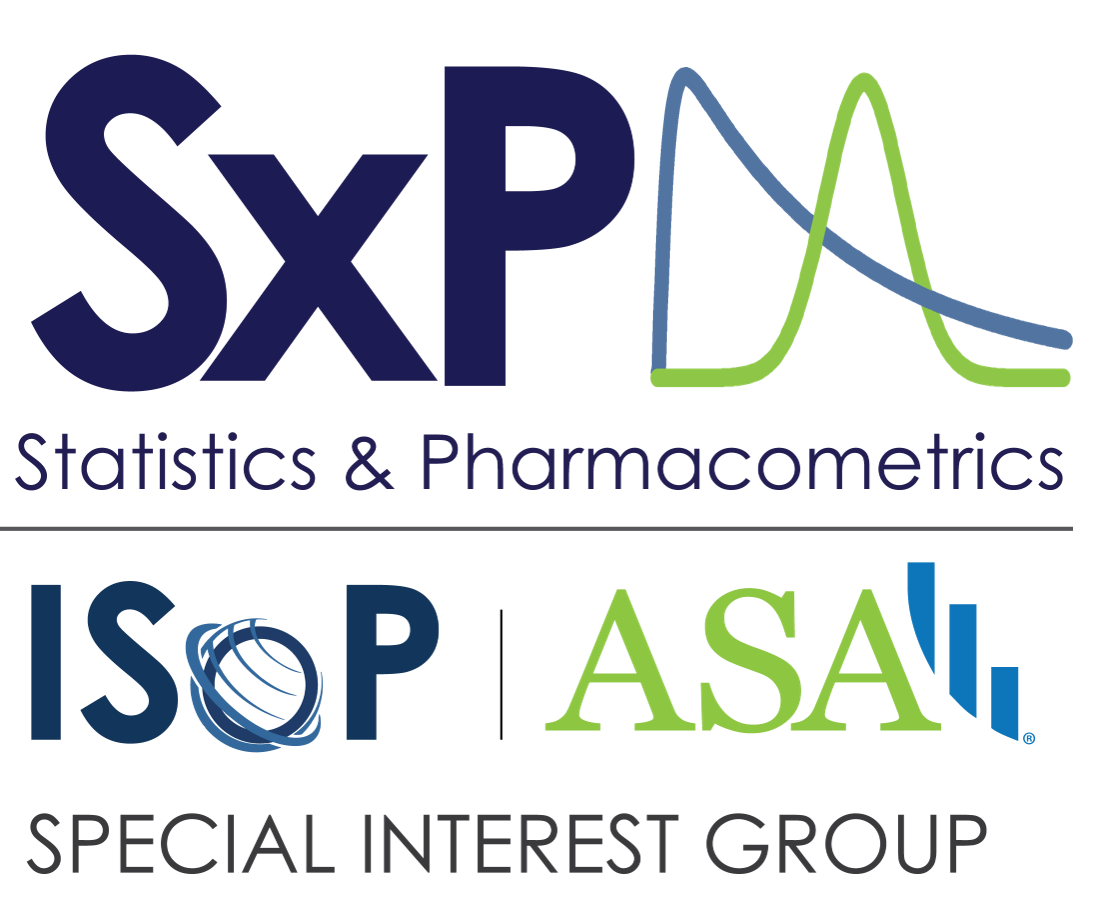ACoP16 Posters
ACoP15
Posters
SxP reviewed the ACoP program and abstracts to select content of interest for SxP
Sunday Oct 19
- (S-010)
- Bayesian modeling allows early inference of pharmacokinetic/pharmacodynamic relationship for a novel small molecule STING agonist in Phase I
- (S-014)
- Survival Modeling of Dementia Risk Using Metabolic Syndrome-Related Genetic Variants
- (S-015)
- Improving Physical Activity Classification with Free-living Wrist Sensor Data: Diving into Unique Feature Groups
- (S-039)
- Machine Learning and Mechanistic Modeling to Predict Intravenous Pharmacokinetic Profiles in Humans
- (S-046)
- Assessment of Weight Loss by Amylin Receptor Agonists Alone and In Combination with GLP-1 Receptor Agonists: A Model-Based Meta-Analysis
- (S-054)
- Computer Modeling of Bevacizumab Drug Distribution After Intravitreal Injection in Rabbit and Human Eyes
- (S-108)
- Impact of Misspecified Residual Error Model for Heavy-Tailed Error Distribution on PK Model Parameter Estimates
- (S-114)
- A Bayesian Population Pharmacokinetic Analysis of Oritavancin in Pediatric Patients with Skin Infections
- (S-116)
- A Novel Bayesian Adaptive Design for Phase I Dose Escalation with Improved Efficiency and Accuracy in Estimation of Maximum Tolerated Dose
Monday October 20
- (M-004)
- Optimal Sampling Workflows with NMsim and NONMEM
- (M-023)
- Towards uncertainty assessment-based acceptability thresholds for model validation?
- (M-078)
- Combining Mechanistic Modeling and Deep Learning for Predicting Survival Probabilities in Oncology
- (M-083)
- Disease progression simulation via generative AI: assessing the credibility of a conditional longitudinal autoencoder via a case study in Alzheimer’s Disease
Tuesday October 21
- (T-039)
- Predicting Tumor Growth Dynamics and Overall Survival with Deep Learning Model
- (T-068)
- Model selection for precision dosing: Comparison of Machine Learning and Evidence-plus-Expertise Algorithms
- (T-069)
- Simplifying the Communication of Covariate Effects from Pharmacometric Models - The Role of Unconditional Covariate Effects
